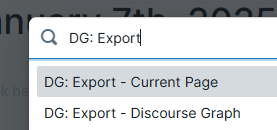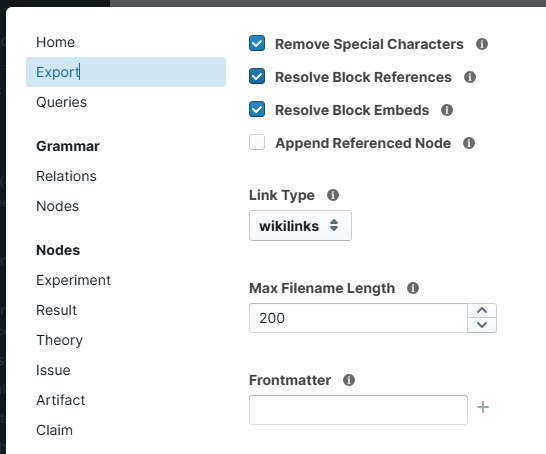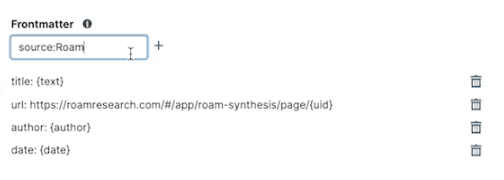Sharing Your Discourse Graph
You can export your discourse graph as a whole, or from queries of your graph, to archive your most important notes, or share them with others.
The extension exports to a number of formats, select an export option to see the options available.

Demo:
https://www.loom.com/share/ca222cb93efb4ed890b4c9e91f05db52
Export Options
We have a range of options for customizing the markdown export. These can be found on the Export tab of the discourse graph configuration.

Here is a brief explanation of each option:
Max filename length
- sets the maximum length of the filenames; this is important if you have page names that are quite long and may run afoul of, say, Windows' filename length limit of 250-260 characters.
Remove special characters
- removes all "special characters" that may lead to trouble for filenames in different operating systems, such as
?(not allowed on Windows) or/(denotes file/folder boundaries).
Simplified filename
- strips away all "template" characters (i.e., everything except the
{content}in the node format: for example, if you define a Claim node as[[CLM]] - {content}, and have a Claim node[[[[CLM]] - people are lazy]], the exported filename will bepeople are lazy
Frontmatter
-
specifies what properties to add to the YAML.
-
By default, the properties are:
title: {text}author: {author}date: {date}
-
You can add properties as key-value pairs in the same format:
Resolve block references and Resolve block embeds
- control whether you want to resolve block references/embeds in your export. You can keep this turned off if you are unsure of the privacy implications of references/embeds.
Link type
- controls whether inline page references are wikilinks (
[[like this]]) or alias ([like this](pageName.md))
Example
Here is an example of a discourse graph exported to Obsidian-compatible markdown: https://publish.obsidian.md/joelchan-notes
